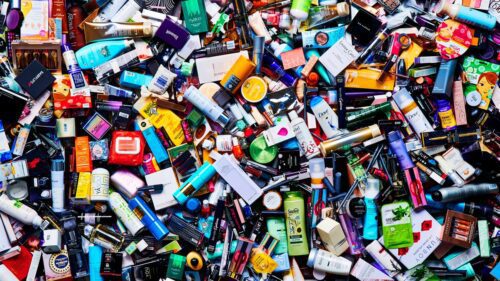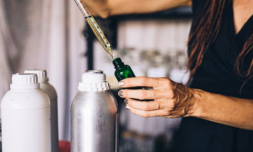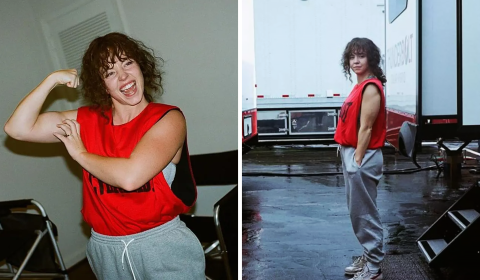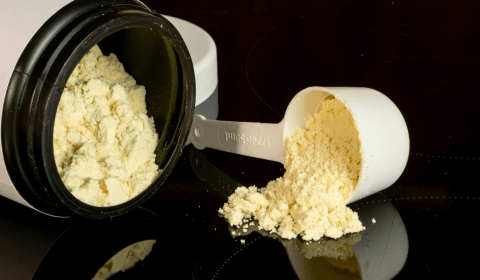To save our planet, the environmentally damaging industry would do well to follow in sustainable fashion’s footsteps and begin turning unwanted off cuts into a zero-waste solution.
In 2021, the negative connotations once linked to pre-owned fashion are no more. During a time in which the threat of climate change is impossible to ignore, second-hand shopping is all the rage and many of us take immense pleasure in scouring thrift stores or welcoming hand-me-downs from friends.
But can we say the same about our beauty purchasing habits?
As we continue to ride the resale wave and praise innovative brands for choosing to up-cycle garments rather than discard them, it seems unusual we haven’t applied the same pressure to an industry renowned for its significant contribution to global pollution levels.
I’m talking, of course, about the vast detritus that our makeup, skin, and hair care routines are leaving in their wake, specifically the 120 billion tonnes of throwaway packaging generated by the ever-expanding sector annually – a sizable majority of it un-recyclable plastic.

Unfortunately, solutions so far have been relatively far-fetched.
Though a limited number of cosmetics companies are working hard to offer circular products and address the packaging issue in the meantime, little is being done about what’s already been produced. Namely unwanted items that have been returned due to damage, fault, or surplus.
Two years ago, there was talk of a second-hand beauty market taking off in Japan, but this was unsurprisingly nipped in the bud over health and safety concerns (long before a pandemic that brought potential contamination and the importance of hygiene even further into the limelight).
So, what’s the answer to preventing rejected products from ending up on already-overwhelmed landfill sites? If you’re a fan of Oddbox like I am, you may have a vague idea. The revolutionary start-up, which has made a name for itself by rescuing produce that doesn’t look ‘right’ and selling it to conscious consumers around the UK, would certainly act as a progressive framework for beauty to follow.

‘Misprints and errors are all part of the process, but we asked how we can find homes for these perfectly good bottles and shine a positive light on this to raise broader awareness,’ explains Eliza Flangan, the brains behind KANKAN’s Near Perfect Starter Sets which include hand and body wash with slight imperfections on the packaging for a discounted price.
‘If we can reduce waste in the manufacturing process, we’ll reduce wasted effort, resources, energy and landfill all in one shot.’
It’s a topic that’s still relatively under the radar, but one with the potential to make a real difference.
I’ll be interested to see how it plays out.
















